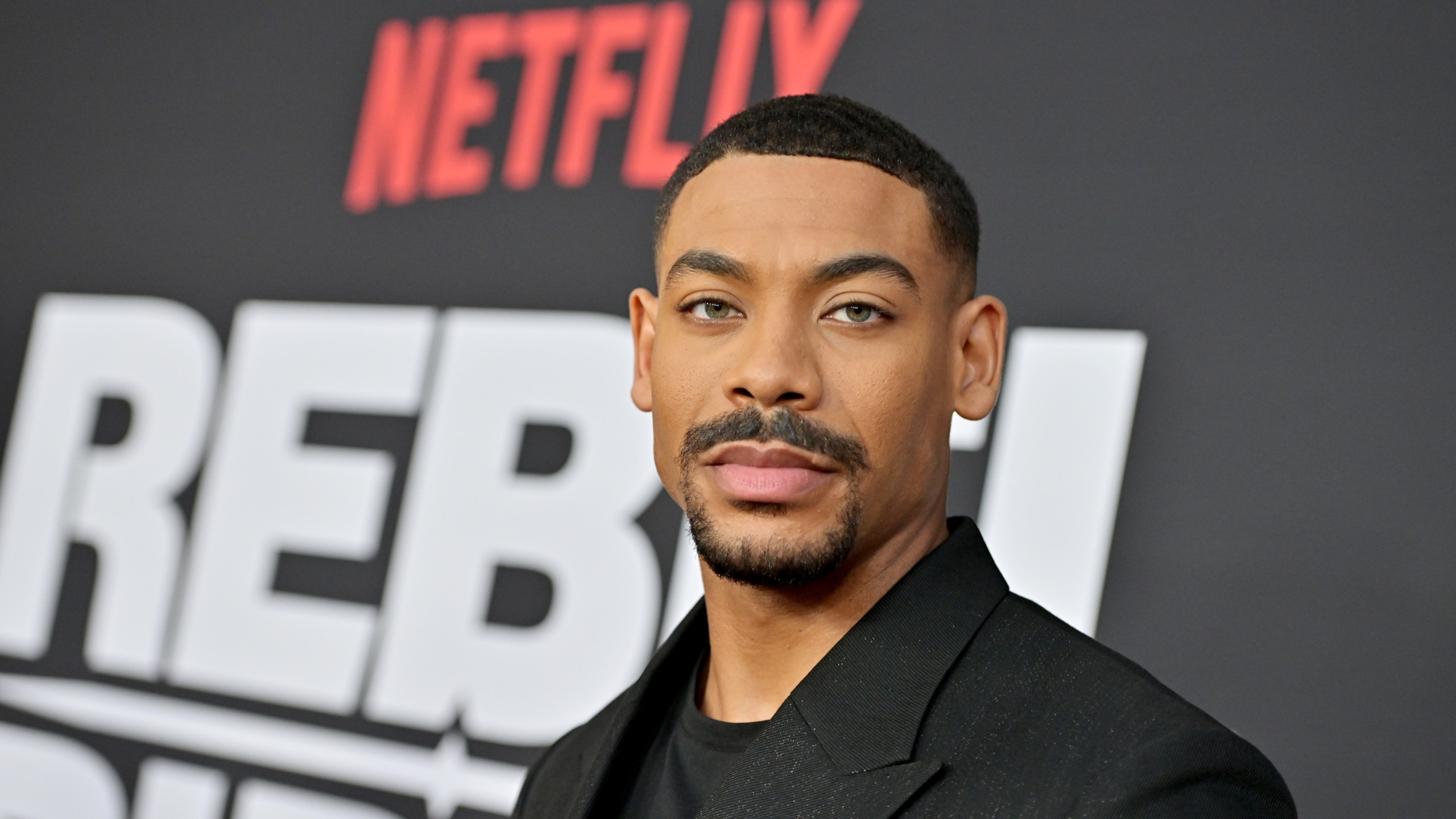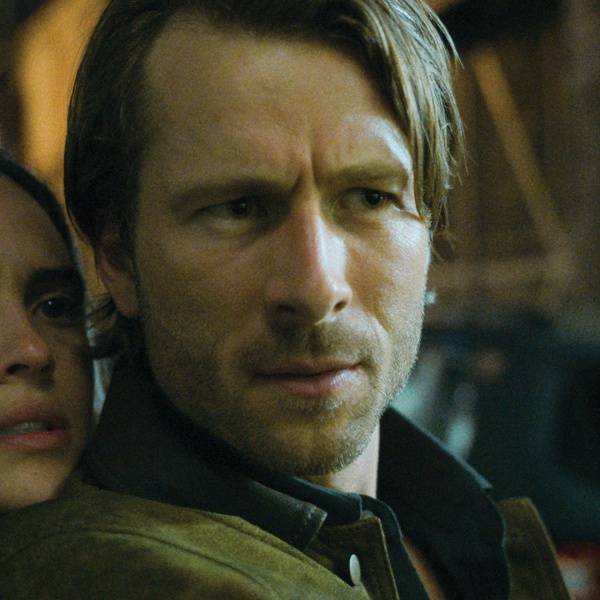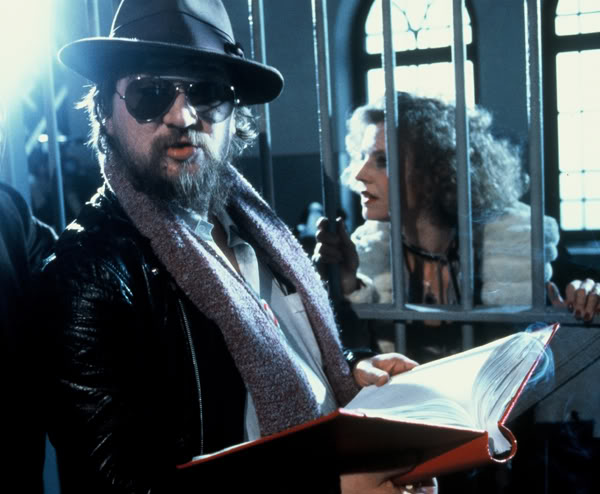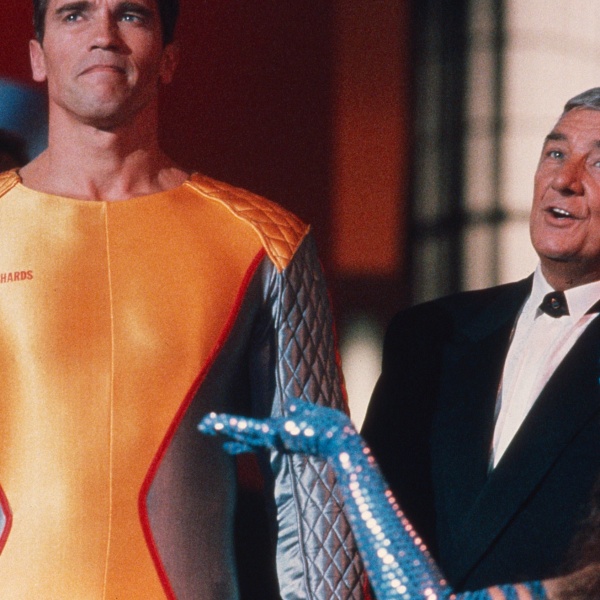Early in his acting career, Aaron Pierre heard he was too tall to ever convincingly convey emotion onscreen. The passing remark stayed with Pierre, who, standing at 6 foot 3 inches, has spent much of his career disproving that notion with memorable characters on stage and screen
After starting out in London theater, Pierre broke out as an enslaved man fighting for freedom in Barry Jenkins’ historical limited series “The Underground Railroad” and as a rapper cheekily named “Mid-Sized Sedan” in M. Night Shyamalan’s existential horror film “Old.” But this year marks a new career-high for the 30-year-old English performer, who became the latest actor to reexamine the legacy of Malcolm X in the fourth season of National Geographic’s anthology series “Genius” and will debut as the rich baritone voice of Mufasa in Jenkins’ new “Lion King” prequel this December.
Pierre’s latest leading role, in Netflix’s “Rebel Ridge,” continues his trend of intentionally tackling projects that shed light on the overlooked humanity of young Black men. In writer/director Jeremy Saulnier’s taut thriller, which premiered last week, Pierre stars as Terry Richmond, an ex-Marine who arrives in the fictional small town of Shelby Springs to post bail for his cousin — only to become embroiled in a battle against civil forfeiture and a corrupt police force determined to weed him out at any cost.
“I always have a three-checkbox system with projects that I do, and that is: filmmaker, script, and character,” Pierre, who felt “Rebel Ridge” “undeniably” passed that litmus test with flying colors, told IndieWire on a recent video call from his apartment in Los Angeles. “Jeremy is just a phenomenal filmmaker. He operates with such intentionality, specificity, and care, and the deepest love for the craft. Like me, he has no interest in the ‘extracurricular’ things that can come with being part of our industry. It’s all about the work.”

Saulnier certainly had his work cut out for him. After John Boyega abruptly left the production due to “family reasons” in 2021, the filmmaker insisted he would not return either until he found the right actor to play Terry. External influences had pointed Saulnier in Pierre’s direction — one of Pierre’s agents had already pitched him for the role, and Saulnier’s wife had seen the actor in “Underground Railroad” — but Saulnier admits he was looking for more of an “unassuming” actor until he saw the gravity that Pierre could convey with a single look. (His piercing, bluish-gray eyes also help.)
Although their initial Zoom meeting lasted close to an hour, Saulnier knew Pierre was the right actor within the first 90 seconds. “Aaron certainly had the physicality that the role demanded, but I needed a lot more out of an actor. Knowing he was from the stage was certainly exciting because the amount of dialogue that he had to spit out was formidable,” Saulnier said. “I was just struck by his thoughtfulness; how deliberate he was. He had this perfectly zen, cerebral side to him, and I needed that for this character.”
“Terry’s the type of individual who can be present in a room and not say a word, but everyone either knows he’s there or feels he’s there, and he’ll be sitting at the back of the room in the shadow somewhere,” said Pierre, who noted that he has “just a fraction” of his character’s physical prowess. “He’s such an elite martial artist that he can successfully conclude any physical engagement that presents itself — and in a way that nobody is irreparably harmed.”
That character required Pierre to get in the best physical shape of his life. After arriving at the production’s home base in New Orleans, Pierre — already a practitioner of Brazilian jiu jitsu, boxing, and Muay Thai — amped up his weightlifting and began training for elaborate action sequences with weapons. He also had to significantly improve his endurance on a bike. “Terry doesn’t ride into town on a horse. He rides in on a bike, but that bike is his horse,” Pierre said. “It’s Jeremy’s sprinkle of a Western in there.”
Pierre’s full-body commitment to his work has not gone unnoticed. Jenkins, who has now been working with the actor for over five years, thinks Pierre fundamentally hasn’t changed. “I think it’s why the success and whatever’s happening with his career just hasn’t overwhelmed him; he hasn’t allowed himself to change, even though the circumstances around him have,” Jenkins said.
Saulnier noted how Pierre appears in 129 of 135 scenes in “Rebel Ridge,” but the actor still understood the importance of tone-setting as the top biller on the call sheet and would regularly check in with hundreds of crew members during the hot and humid shoot. “The amount of respect that he offers everyone around him creates this immediate reciprocity. When he walks into a room, he’ll look you in the eye,” Saulnier said.
Kelvin Harrison Jr., who starred as Rev. Martin Luther King Jr. opposite Pierre’s Malcolm X in “Genius” and reunited with him for “Mufasa,” now considers Pierre one of his closest confidantes. As Black men who turned 30 within weeks of each other this year after dedicating most of their 20s to acting, Pierre and Harrison Jr. have found comforting common ground in their personal and professional experiences — a connection that immediately brings to mind the friendship between the late Sidney Poitier and Harry Belafonte.

The two best friends have had all kinds of wide-ranging conversations: their fears over playing historical figures, especially civil rights icons; the responsibility they feel to make the most of opportunities that their forebearers didn’t have at the same age; the surreal experience of working with industry titans; their favorite things to cook; and, yes, even what their dating lives are like now.
“Aaron’s always looking out for my best interest and making sure I feel safe and empowered, and I think a lot of that comes from how his parents raised him and his sense of identity,” said Harrison. “He has a very strong sense of where he’s come from, and that fuels a lot of it. He’s not taking on roles to figure himself out.”
The eldest of three children born to a Jamaican mother and Curaçaoan-Sierra Leonian father in South London, Pierre was brought up on a council estate — the British equivalent of the “projects” — in West Croydon, where he grew up with other culturally diverse children from immigrant families. That kind of upbringing has shaped the way he lives his life, he said. “How all of us in that area were raised was, ‘It’s plan A or plan A. If you want something, you have to put all your eggs in one basket, and that way at least you know for certain whether it was your calling in life. And that’s a really scary thing to do.”
As a child, Pierre dreamed of becoming a professional sprinter, wanting to follow in the footsteps of former Olympic gold medalist Maurice Greene. But in his early teen years, around the time he became more seduced by the freedom of adolescence than by running stairs and hill sprints, Pierre landed the role of the narrator in a high-school production of “Moby Dick.” The school didn’t have a drama department and only produced a play every three years, but Pierre, whose father is also an acting and life coach, felt he had found his calling.
While he stresses that “there is no one path” to be an actor, Pierre decided to take a more academic route. A self-described nerd, he wanted to “geek out” with teachers and mentors about pioneering playwrights (Shakespeare, Steinbeck, Miller, Chekhov), classic acting teachers (Stanislavski, Meisner), and literary classics (Jacobean texts, Greek tragedies). He spent two years training at Lewisham College in London, then spent a year at the George Brown Theater School in Toronto and completed his education with three years at the London Academy of Music & Dramatic Art.
In 2018, Pierre played Cassio in a production of “Othello” opposite André Holland and Mark Rylance at the Globe Theatre in London. Jenkins attended one of those performances to support Holland, but the writer/director was so impressed with Pierre’s ability to command the stage, despite not being the lead of the piece, that he DMed the actor. Pierre thought someone was playing a joke on him.

“Once the camera’s in [his face], you really start to see that still waters run deep. There was a lot that was very deep within Aaron, and I thought he was perfect for the character of Caesar,” Jenkins said. Jenkins loved Pierre’s performance so much that, during the “Underground Railroad” production, he wrote an additional scene in Episode 8, in which protagonist Cora (Thuso Mbedu) goes into the underworld and dances with Caesar, who tragically died on the road to freedom, one last time.
“Even when Barry would give notes on set, Aaron would listen intently, taking everything in,” Mbedu, who bonded with Pierre over both being introverts, wrote in an email. “A small frown would form on his brow as he considered the different ways to apply the suggestions. If he couldn’t fully make sense of it, he’d come and ask in his quiet voice for my thoughts and opinions. That is one of my most favorite things about him: always willing to learn and grow.”
In late 2020, Pierre received a text from Jenkins, then already attached to helm “The Lion King” prequel, who asked him if he could sing. (Well, can he? “We’ll see!” Pierre said with a laugh.) But despite his existing relationship with Jenkins, Pierre still insisted on auditioning for the project, reasoning that he wanted to feel like he had “earned” the lead role.
Harrison believed that “a lot of the best qualities of Mufasa are the best qualities of Aaron.”
“As we know from the original film [about] who he becomes, Mufasa has a sense of stability and a knowingness of where he comes from. He reminds and empowers Simba to embrace that,” Harrison said. “Aaron comes with that for free every single day; he will quickly remind you of who you are and what you’re capable of.”
“The Lion King” debuted in 1994, the same year Pierre was born. His first memory of watching the Disney animated film on VHS, he said, came just a few years later. “I remember, after a lot of the songs, jumping off of my parents’ sofa and going up to the little black box and holding the rewind button, and then I had to watch it multiple times,” Pierre said with a fond smile. “So, what would’ve maybe been a 90-minute film, when I was watching it as a kid, turned into a three-hour viewing.”

Jenkins said Pierre’s portrayal of Mufasa has given him a “newfound appreciation and understanding” of why the character has endeared audiences for three decades. “One aspect of Mufasa that you can’t escape is that you’re casting someone who ultimately needs to become the voice of James Earl Jones. That’s a really impossible task,” Jenkins added. “But the things that he goes through in our film are very unexpected, and it’s a new layer to that character. So, in a certain way, he didn’t have to live in the shadow of what [Jones] had done, but it was great to see that he was very respectful of it and wanted to actively acknowledge it without trying to imitate it.”
Pierre grew up studying the work of Jones, whom he calls “one of my greatest inspirations as a man and an artist” and credits him for helping pave the way for subsequent generations of Black artists. Any time he was asked about “Mufasa” in interviews — including this one — Pierre would always plead openly for an opportunity to meet Jones in person, but that meeting, unfortunately, never happened. (Jones died September 9, at the age of 93.)
When audiences meet Mufasa in “The Lion King,” “he’s the king of the pride lands, he’s strong, emotionally intelligent and powerful, and he has everything seemingly understood in life,” Pierre says. “I think what’s really exciting about [“Mufasa”] is that we get an insider’s look into how he became the lion that he is. And actually, he wasn’t always embraced at many times on his journey as a child and an adolescent; he was viewed and labeled as an outsider.”

In doing so, “it allows the qualities of Mufasa to become more tangible, and it makes us feel like we can all achieve the clarity of vision, [the idea of] being present in any given moment that this awesome lion has,” Pierre adds. “I think that’s another awesome thing about animation. It allows us to reflect on our own personal lives and journeys in a way that is really accessible.”
Since early July, Pierre has been shooting the fourth season of “The Morning Show,” in which he will debut as Miles, an acclaimed visual artist who moves through the circles of the New York elite. For Pierre, the soapy Apple TV+ drama aligns with his desire to “continue to work with phenomenal artists and people who are there to do the work.” He even reveals that he has already shared scenes with Jennifer Aniston, Billy Crudup, Greta Lee, and fellow new recruit Marion Cotillard. “Being a sponge, just absorbing insight, absorbing experience — that’s my love language. It has been a wonderful experience, and I’m having a lot of fun.”
While he doesn’t take himself very seriously, Pierre admits he takes his work very seriously, because he wants the Black diaspora “to feel seen, to feel heard, and to feel respected.” He is currently trying to get an undisclosed biopic off the ground, but there is one character that he desperately wants to play one day: Troy Maxson in “Fences,” a role previously played by Jones and Denzel Washington. “I would love the opportunity to contribute to the telling of that character, but I think I might have to wait a few years,” he laughed. “I don’t know if they’re going to see me as Troy Maxson for maybe another two decades.”
With his body of work already encompassing various eras and genres, Pierre has the kind of range that will send him to the top of any Hollywood casting director’s list.
“I think he’s destined for superstardom for sure,” Saulnier said, “but I do have full faith and confidence that he’s always going to stay grounded.”




